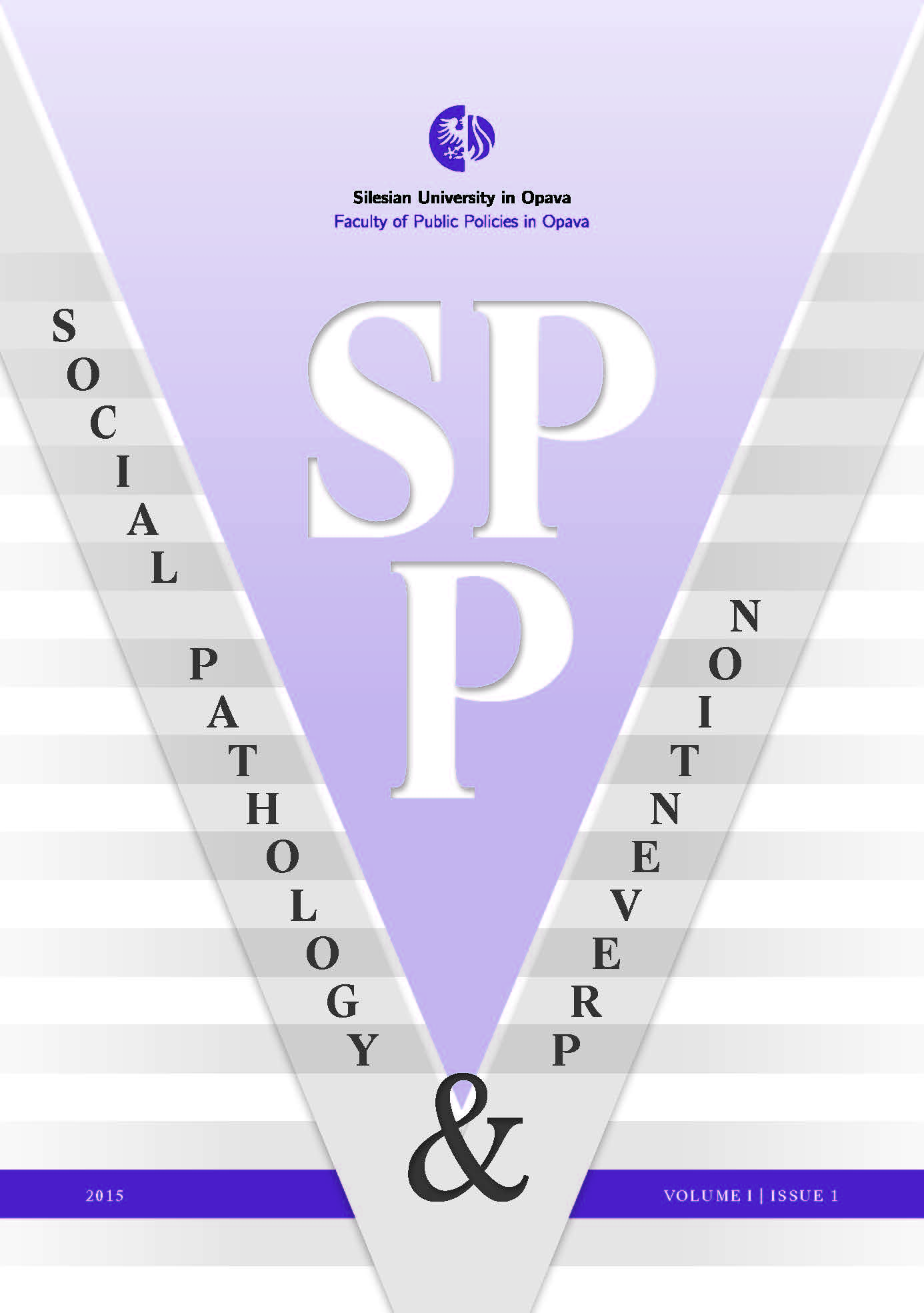
We kindly inform you that, as long as the subject affiliation of our 300.000+ articles is in progress, you might get unsufficient or no results on your third level or second level search. In this case, please broaden your search criteria.

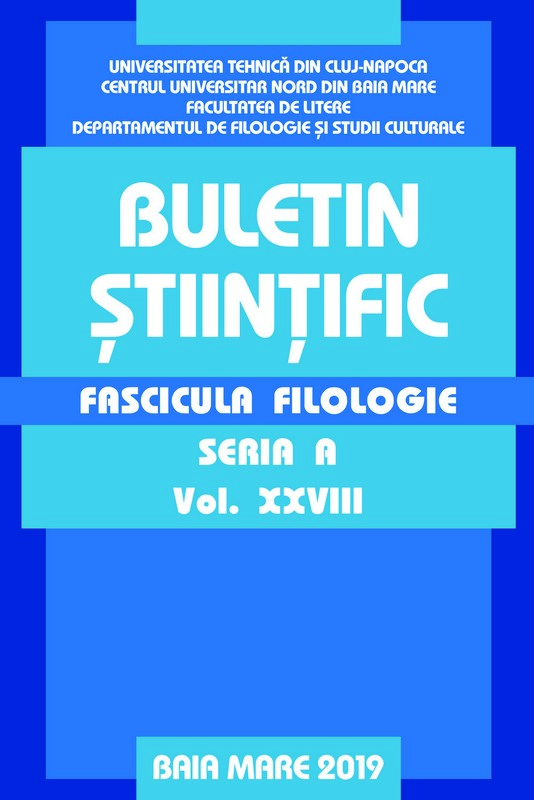
The Maramureş County has preserved itself and evolved through culture and civilization, thus ensuring its continuity through past, present and future. The material and spiritual creation represents the traditional heritage of the previous generations. This heritage has become the object of its knowledge and its harnessing to add new and modern creations to the future. Tradition brings together habits, beliefs, knowledge, practices that are preserved and transmitted from generation to generation. It is the community’s dowry; it is a proof of the way of life in different historical periods and becomes a significant part of reality. Tradition can be considered the inheritance of a community with both its successes and failures - all of which are offered as precious teaching to the future generations. It is an evidence of the community’s existence, its natural conservation, and its direction for progress or regress. Relating to tradition is now an issue of education. Tradition must be preserved, respected, exploited, and selectively transmitted to future generations.
More...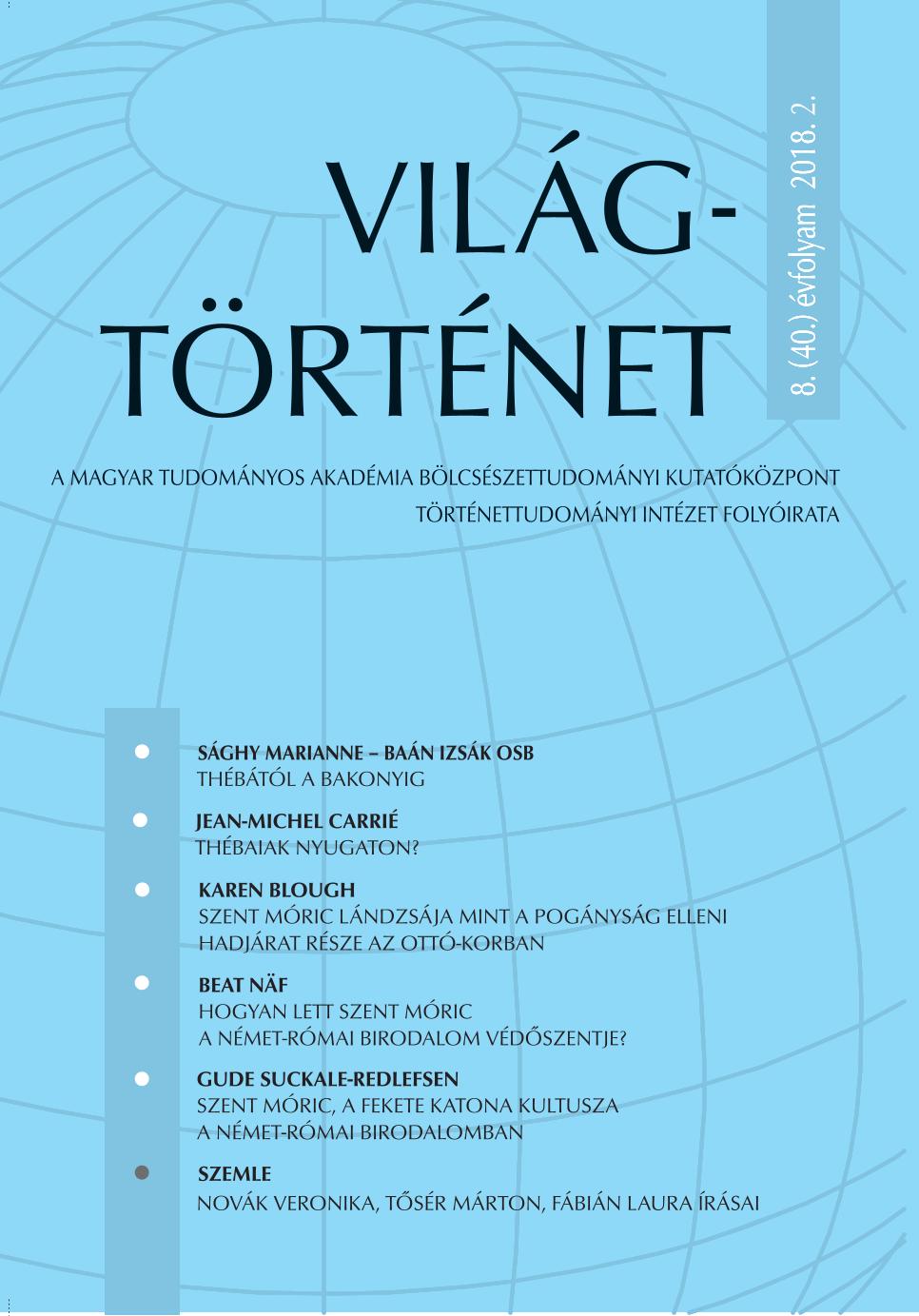
Riché, Pierre: Oktatás és művelődés a barbár Nyugaton (6–8. század). Bp., Szent István Társulat, 2016. 532 p
More...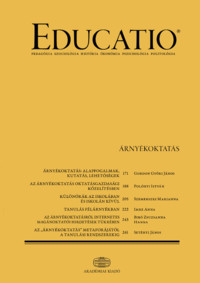
My following study is about the establisment of the State Civic School Teacher’s Training College in Szeged. It also contains information about the establishment of our country’s first Educational-Psychological Instute, and of it’s first (catholic) headmaster’s, Hildebrand Várkonyi’s work. The University of Szeged was put together of protestant teachers from the university in Kolozsvár in 1921. The Religious and Educational Board helped increase the attendance of the Faculty of Liberal Arts, but also decreased the protestant nature of it. The Religious and Educational Board also achieved this by moving the state, and catholic teacher’s training college from Budapest to Szeged and by duplicating the departments of the remaining protestant Faculties of Liberal Arts. Várkonyi’s pedagogy and psychology got built into the culture of civic schools.
More...
The present study invites to a more attentive approach of RomanianPedagogy from the 19th century Transylvania. If the pedagogical vocation is aconstant trait of the Transylvanian intellectual’s profile, however it’s difficult tomake a correct evaluation of the models, especially for a historiography thatcontinues to make confusions beetwen political and intellectual spheres
More...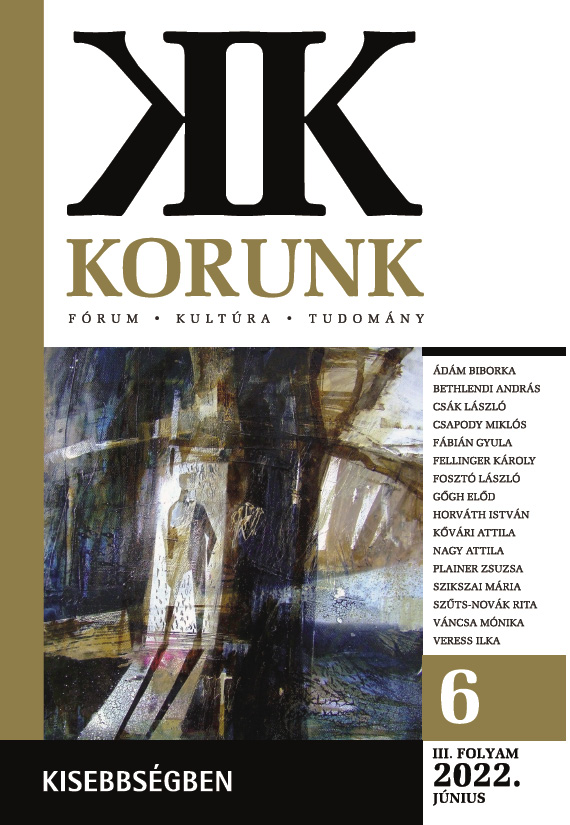
The object of our qualitative research was provided by the discovery of primary sources in the manuscript archives of the National Széchényi Library, and our interest turned with natural curiosity towards the person of Sándor Imre and the cultural milieu surrounding him. In our opinion, the interdisciplinary historical investigation enriches both the history of education and cultural history with many new results, while also nuancing our literary history. Katalin Kéri highlights the name of Sándor Imre as a significant thinker in the history of Hungarian intellectual history between the two world wars, whose true knowledge and understanding has not yet been achieved in a wider circle. Sándor Imre’s theoretical activities are also important to discuss because as a practising, leading teacher he influenced the education of the first half of the 20th century, and as a politician of education his views on educational policy are relevant as well. The micro-historical focus of the case study I am presenting is on Sándor Imre’s letters to the Magyar Szemle Society.
More...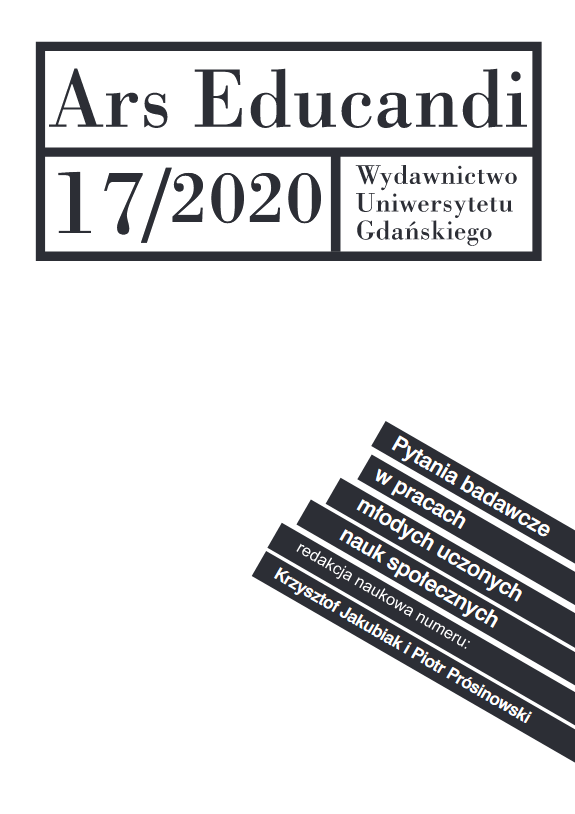
The article analyzes the related to the concept of a role of a teacher in three years of “Peda-gogical Review” in 1887, 1939, and 2016. It shows how the authors of individual articles understood the title concept and what they associated the role of a teacher with. The summary shows the similarities and differences that have appeared over the years in the analyzed area. The subject of changing the nature of the journal itself, from methodical, through professional, to scientific, was also discussed.
More...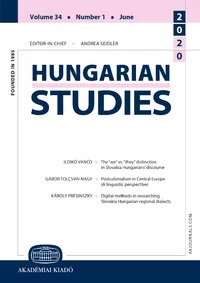
One of the most outstanding cultural events of the year 2019 is the facsimile edition of the Hungarian Szalkai Codex, thanks for which are due to cooperation between the Library of the Primate of Esztergom and the Collection of the Roman Catholic Church at Sárospatak. This outstanding cultural asset, written at Sárospatak (called Patak at that time) and guarded at Esztergom, serves as a curiosity not only for researchers interested in palaeography but also for specialists working in different fields of the history of education. This codex is not only the oldest, but at the same time the only surviving Hungarian schoolbook from the Middle Ages. With its help we may reconstruct some of the ways in which town (parish) schools operated under the reign of King Matthias. The present study focuses on medieval music education.
More...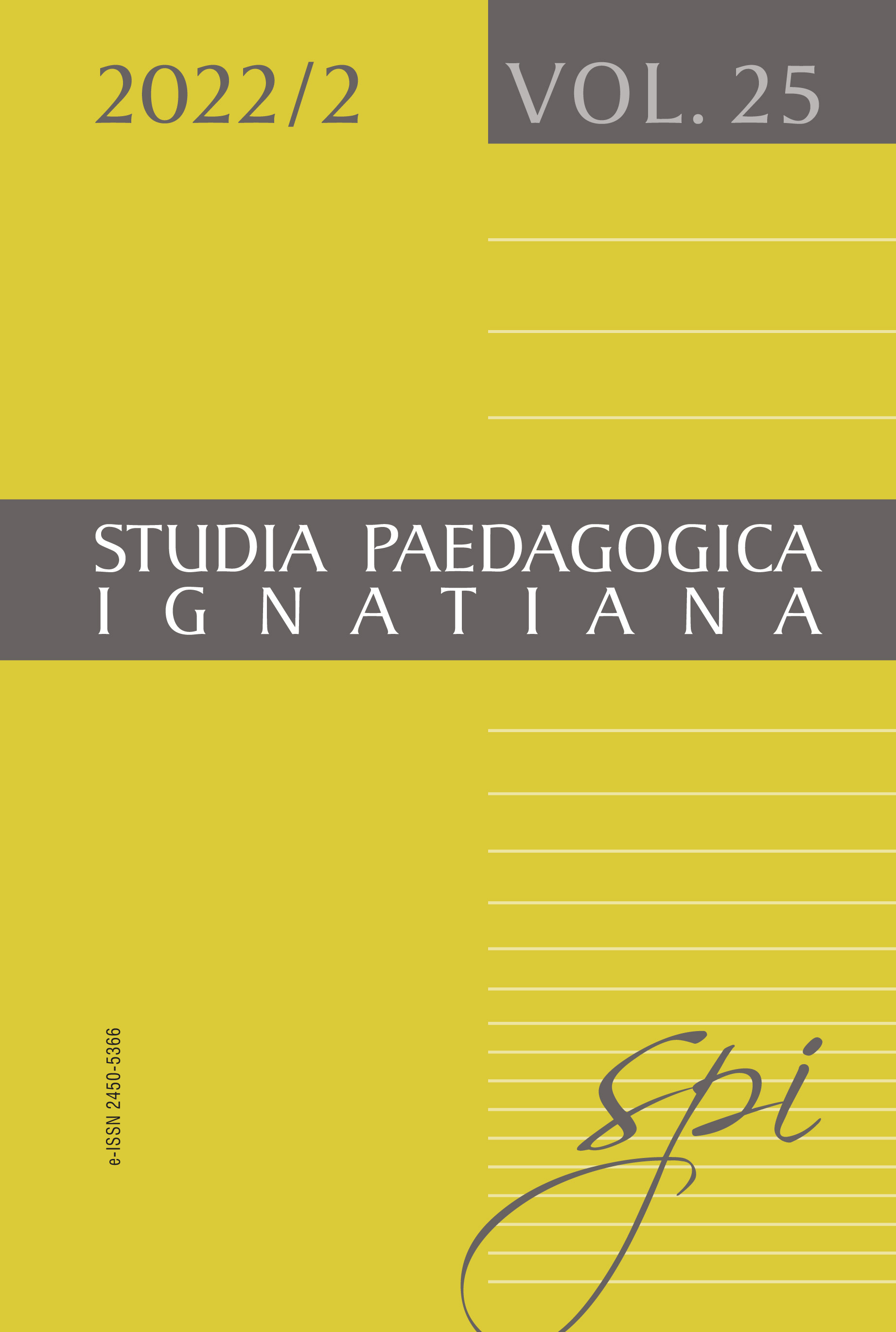
The subject of the analysis undertaken in this article is the issue of the scientific, political, and social relations between Jan Hulewicz and Stanisław Kot, two eminent scholars, professors of the Jagiellonian University, researchers of the history of education and intellectual culture, as well as active participants in the political and social life of Poland in the first half of the 20th century. On the basis of existing biographical studies and source materials available in the archives of the Jagiellonian University and the Institute of National Remembrance, the text presents in chronological order their stages of education and the meanders of their professional and academic careers, together with their political activity and the subsequent course of the lives of both scholars. The four periods distinguished are the time of Galician autonomy, interwar Poland, the Second World War and the post-Yalta period. Discussing the biographies of the two scholars, the article draws attention to the numerous similarities in their courses – i.a. the beginnings of their scientific careers related to the Lviv circle and Polish philology, and creatively continued in the Krakow circle in the field of cultural history and education; their adherence to certain ideological principles, their common political and ideological environment and commitment to the service of the Polish state. Despite being behind the Iron Curtain and subject to communist repression, the scholars’ cooperation remained unbroken. Hulewicz continued and developed Kot’s important initiatives in Poland, becoming the depositary of his legacy and executor of his last will.
More...
The article is devoted to one of the most distinguished Polish scholars and academic teachers, Stanisław Franciszek Tync. In his academic and professional biography, two periods should be distinguished: the interwar period and the postwar period. The text focuses on a presentation of his activities concerning the development of the history of education after the Second World War. At that time, he was an academic teacher at the University of Wrocław. The presented reflection focuses on the discussion of his scientific, organizational, and didactic activity related to teaching the history of education. His merits in educating young scientific staff are also outlined. The issue of Tync’s participation in the scientific life of historians of education is also discussed.The article was prepared using mainly archival materials from the Archives of the Polish Academy of Sciences in Warsaw, Archives of the Jagiellonian University, Archives of the University of Wrocław. The correspondence, reviews, and opinions of Tync, as well as the documentation of his didactic activity, turned out to be crucial for any discussion of the topic. From these sources, we can read Tync’s contribution to the development of the scientific community of educational historians and reconstruct the issues of teaching the history of education.
More...
Many academic centers in Poland conduct historical-educational research, including the circle of historians of education at the University of Łódź, the founders of which are discussed in this paper. The purpose of the paper is to present the main research interests of the professors who were also subsequent heads of this center of history of education and mentors, focusing not only on writing research works but also on gathering young researchers around themselves and teaching them.Using the historical explanation and text analysis methods, the main areas of research interest are described of Prof. Stefan Truchim, Prof. Eugenia Podgórska, and Prof. Tadeusz Jałmużna. Their scientific achievements include the reconstruction of the educational past from the 18th to the 20th century. As a result of their source queries, mainly involving archives and journals, valuable works have been published concerning the widely-understood education system during the times of the Commission of National Education, the period of annexations, the interwar period, and the Polish People’s Republic. The characteristics of the scientific output of the professors who worked at the University of Łódź for over sixty years include continuity but also change. In this event, continuity means continuing in part studies started by one’s predecessors but also, on the other hand, maintaining their high methodological level. Change is demonstrated by choosing new areas of research which had not been looked into by education historians before.
More...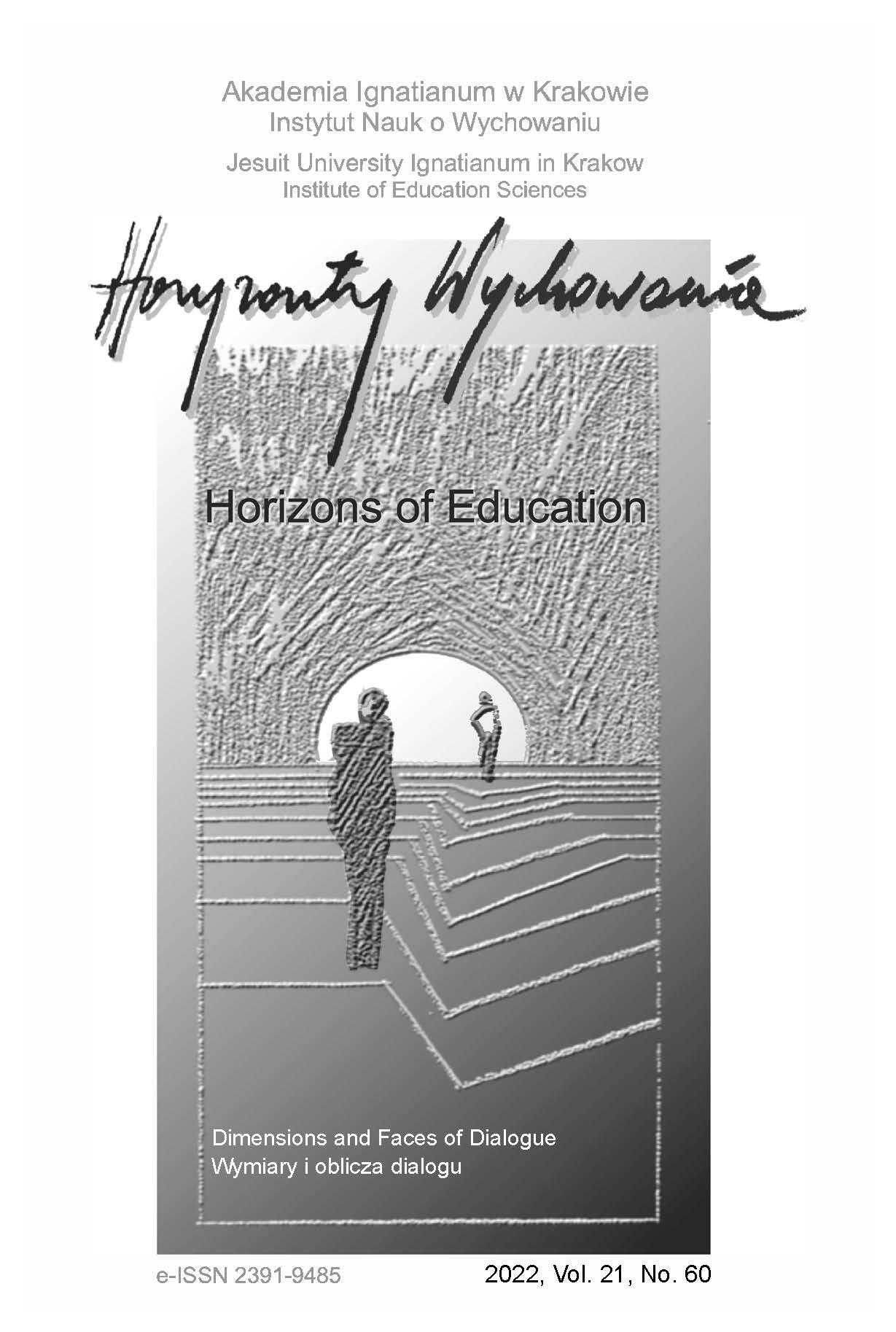
RESEARCH OBJECTIVE: The aims of the article are of three types: exploratory, descriptive, and explanatory. The exploratory aim includes striving to identify the basic facts related to the implementation of autonomy in non-public schools after 1989; the descriptive purpose includes an attempt to document the process of autonomy in non-public schools, and the explanatory objective includes developing and enriching theoretical explanations.RESEARCH PROBLEM AND METHODS: In relation to the subject matter, the research question is: how did the process of implementing autonomy in non-public schools develop? The research used a qualitative strategy, and the tool used during the research was an interview with the founders and principals of Polish non-public schools.THE PROCESS OF ARGUMENTATION: Non-public schools were being established in Poland after 1989 as a result of the political transformation. They were perceived as modern grassroots forms of education based on humanistic, democratic values. Autonomy was to be a tool and help in the fulfilment of those values and ideas.RESEARCH RESULTS: In non-public schools, autonomy was a gradual process. To a large extent, the scope of autonomy and participation in decision-making processes first of all depended on the management units, such as the principal and the governing authority.CONCLUSIONS, INNOVATIONS AND RECOMMENDATIONS: For the founders and principals of schools, autonomy in Polish non-public schools was an important element in building the school community, although it was carried out by trial and error because there were no available models for implementing autonomy. In future, it would be worthwhile to undertake empirical research of Polish public schools in the field of exercising autonomy, and then to carry out comparative research in this area.
More...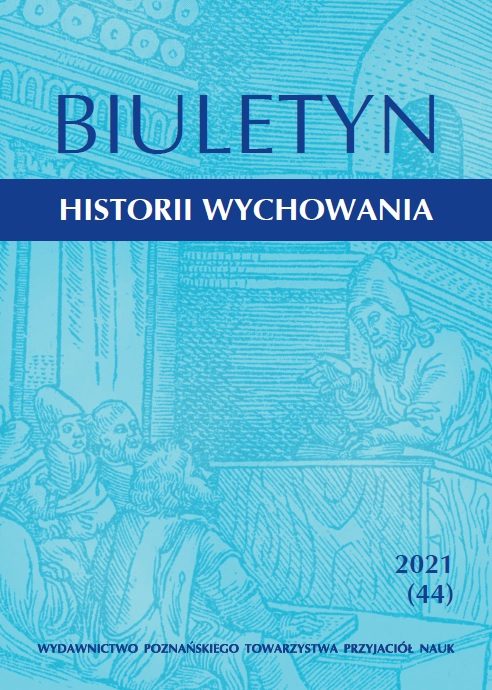
Baltasar Gracián’s views revolved around the motivation of moral axiology in reference to the cognitive knowledge of reason and the practical knowledge of reason, by which individuals achieve effective results. He believed that knowledge of motivation, strategies and tactics for successful goal achievement should be imparted in education, while wisdom is expressed by effective long-term and permanent results of reasonable actions. Behavioral strategies motivated by moral axiology result in increased human spiritual and material well-being in society, and education in this area contributes to knowledge spread and moral progress. Temporal wisdom is both life wisdom and worldly wisdom; the former belongs to the human nature of life and is a driving force behind the creation of a better human world.
More...
Aim. The purpose of the study is to reveal the cognitive potential and limitations of causal analysis in historical and pedagogical research and to consider alternative methods of explaining historical and pedagogical facts. Methods. Methodological significance for the study were the principles of historicism, objectivity, historiographical tradition, taking into account the totality of facts. To implement the goal a set of theoretical methods was used: analysis, synthesis, comparison, generalisation, and systematisation of scientific positions, historical- genetic, historical-comparative, historical actualisation of the problem. Results. The essence of causality as one of the most important forms of interconnection and interdependence of phenomena and processes of being, expressing a special genetic relationship between them, reveals the specificity of functional and stochastic (random) causality. Historical forms of determinism were characterised: classical (linear), non-classical (non-linear) and neoclassical (fractal). Conclusion. The search for monocausal determination in the study of historical and pedagogical processes seems unproductive. To get a more complete and reliable picture of the cause-effect relations the causal analysis should be complemented by teleological analysis, which will make it possible to find out not only why, but also for what purpose certain actions were carried out. Only in this case is it possible to provide scientific and objective historical explanations and interpretations, the adequacy of understanding of historical and pedagogical facts, to find ideas and meanings in the past experience, which will help to solve contemporary educational problems, to predict the development of education in the future.
More...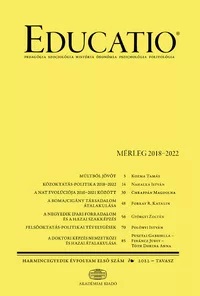
The study examines the geographical origin of Protestant members of the Academia in the Hungarian Reform Era with the help of collective biography. First, it assigns stages in one’s studies and course of adult life to cultural regions. Then it determins the ratio between these cultural regions, the power of their academic representation, as well as the persons’ movement among cultural regions, and the scale and intensity of their mobility. The investigation is enabled by the fact that the Academia in the Reform Era operated mechanisms balancing along various lines of intersection, and thus strove for a certain representativeness in both denominational and geographical terms. Investigating the mobility of academicians in the Reformed Era may provide new arguments for the independence (and closedness) of Debrecen and Transylvania, as well as convincing numbers substantiating the increasingly growing pull of Pest.
More...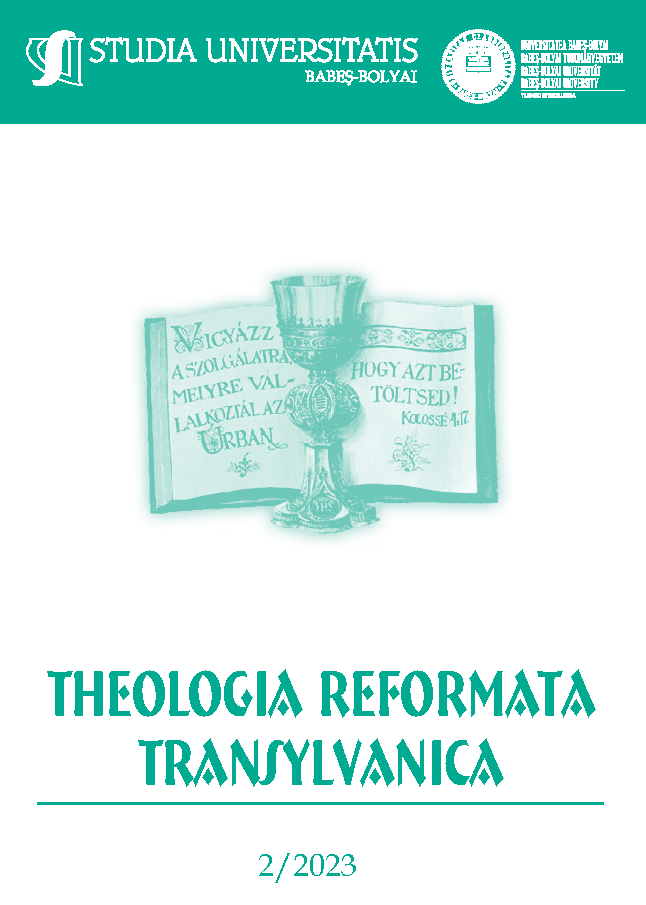
A Protestant Ethic of Duty, a Living Example of a Serving Spirit Biography of Law Professor Jenő Balogh (1864–1953). Our publication is part of a larger prosopographical study of the careers of Calvinist university professors belonging to the Hungarian knowledge elite in the bourgeois era (1848–1944). Jenő Balogh, a professor of law, was an academic researcher, a ministerial legislator seeking new paths, a teacher of modern disciplines, a minister in difficult times, and the General Secretary of the Academy. For decades, he held leading positions in the Calvinist Church of Hungary. His way of life and his work were determined by a Puritan Christian worldview brought from his family and by a dutiful Protestant ethic.
More...
The First Hundred Years of Women’s Theological Education in Cluj-Napoca. The initial topic of the study at hand addresses the beginnings. In terms of women’s education, one of the positive effects of the Reformation is the insistence on the widespread availability of the Bible, which was inevitably followed by the eradication of illiteracy among women. Following the Reformation, another argument emerged in favour of the importance of educating women in theology: society regarded women as a key role in raising children, so in order to raise their children educated in theology, their ability to do so became a priority. The second topic addresses the direct preconditions of the theological education of women, especially the changes in the 19th-century school history, which resulted in women’s admission to universities and opening up the opportunity for them to obtain degrees in higher education.Furthermore, the study presents the past hundred years of women’s education in theology in the Protestant educational centres of Cluj-Napoca – from the first enrolment, the first ordained woman minister up to the present time.
More...
The Beginning of Homiletics Education at the Theology in Pest, in the Light of the Manuscripts of József Székács. The Faculty of Theology in Pest opened its doors in 1855. The institution cooperated with the Lutheran Church in the first ten years. During this time, future Lutheran Bishop József Székács led the studies of homiletics. This data can be found in the Ráday Archives with the list of professors and popular study books they used. We also discovered the fact from the timetables that Székács taught homiletics practice to four different grades at the same time, usually at his parish. We can find Székács’s heritage in the National Lutheran Archives, such as his letters, notes, sermons, and so on. I carried out research on his homiletics manuscripts, from which I would like to highlight his memo titled A gyakorlati homiletika alapja 1858/9 [The Journal of Practical Homiletics 1858/9]. The memo includes recommendations for his students about preaching preparations for Christmas, Good Friday, and Easter. Székács’s work is particularly pragmatic, and therefore it successfully guides the pastor students through the steps of preparing a good sermon.
More...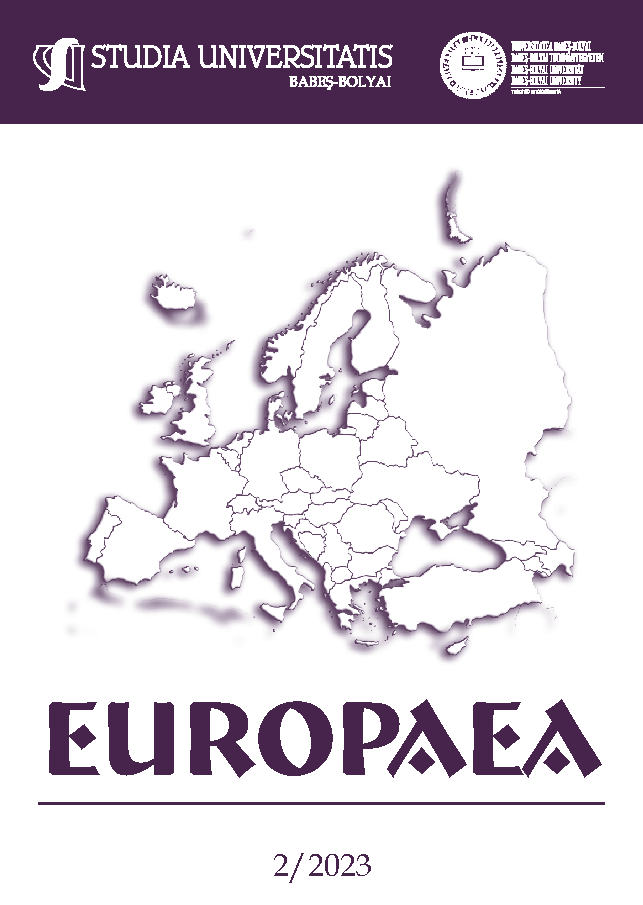
This article aims to analyse the education system in the city of Cluj during the post-war period, after World War 2, with a close focus on the period of time between 1944 and 1948. It's a period characterized by a series of successive crises resulting from political decisions. These decisions affected all levels of education, all ethnic and religious groups in the region, as well as the political opponents to the newly established communist regime of the Romanian Communist Party, primarily represented by these three political parties: the National Peasants' Party, the National Liberal Party, and the Socialist Party. Throughout the research into education within this time period, a combination of methods were used, including historical, comparative and statistical methods, and the sources used refer to both official and unofficial archived documents, contemporary press, and edited documents.
More...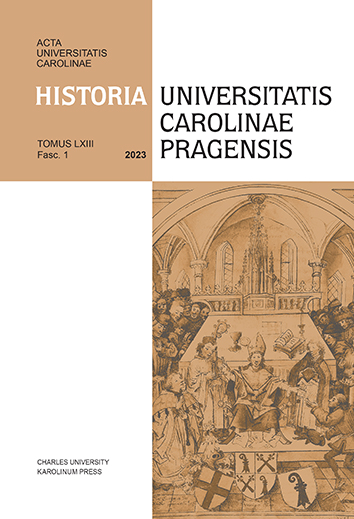
This study presents an overview of the institutions and forms of higher education in Switzerland. In addition to the University of Basel, founded in 1460, the author deals with Protestant Hohen Schulen (academies) (established in Zurich in 1525, in B
More...